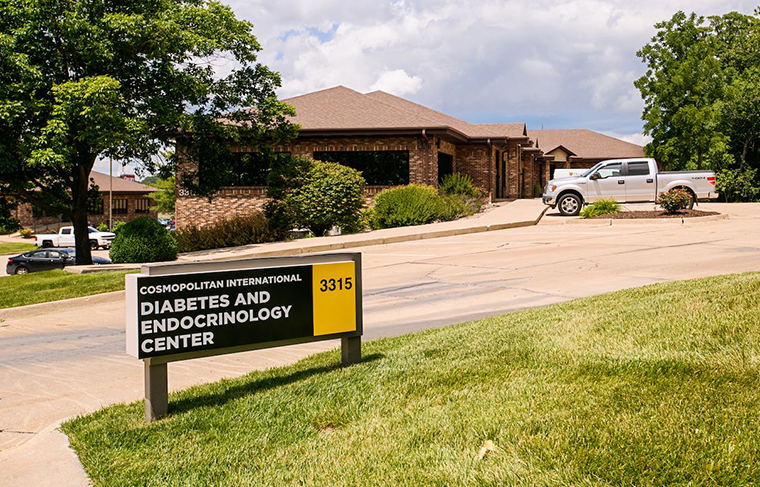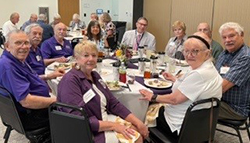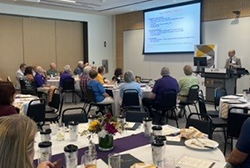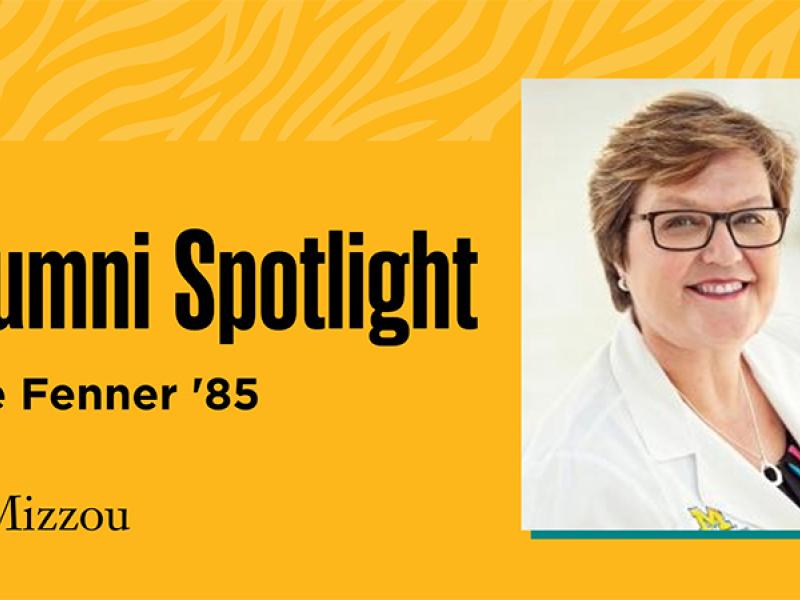Dear Colleagues,
We were pleased to recently host the Cosmopolitan International Meeting and Luncheon in the Roy Blunt NextGen Precision Health building. What is Cosmopolitan International? This group was established in 1918 in Kansas City for individuals to come together and do good things for others as “citizens of the world.” That is actually what the word cosmopolitan stands for — something I learned from our local Cosmopolitan group leaders.
The group was formed in the wake of WWI as soldiers were coming home from war and the country was energized to make the world a better place. So, after starting humbly in Kansas City, these civic-minded groups took hold across America and eventually across the world to raise money for good causes. Then in the 1970s, a local physician who was a member of the local Cosmopolitan club, Dr. Thomas Burns, pitched the idea to the international organization that they focus their attention on raising money to support programs for diabetes. Dr. Burns was an endocrinologist at our medical school and took care of diabetic patients.
Amazingly, Cosmopolitan International liked the idea and since then that has been the sole focus of this large organization. In 1984, the local chapter helped establish the diabetes clinic at MU Health Care, called the Cosmopolitan International Diabetes and Endocrinology Center, which is now located at 3315 Berrywood Drive, Suite 201, just off Keene Street. The interim director of the center is Dr. Lilamani Romayne Kurukulasuriya.

The chapter raises money through various events and programs throughout the years and our Cosmopolitan International Diabetes and Endocrinology Center is the recipient of these donations.

We invited the local chapter and regional leadership to lunch in the Roy Blunt NextGen building so they can hear from our diabetes researchers and also visit with Dr. Kurukulasuriya and members of her clinical team. We wanted to tell them about the exciting research happening in the building on diabetes. A presentation was given by Dr. Haval Shirwan, professor of child health. He and his research partner and spouse, Dr. Esma Yolcu, joined MU in 2020 and have established a flourishing research laboratory in the Next Gen building.
One of their main areas of focus is how to come up with better treatments for Type 1 diabetes that involved improving the likelihood of success from islet cell transplantation. Infusing diabetics with transplanted islet cells that make insulin is challenging due to both cell rejection by the patient’s body and the fact that it is hard to find a supply of islet cells to transplant. Drs. Shirwan and Yolcu have a research program that addresses both these challenges by generating islet cells from a patient’s own skin cells and re-engineering them to become islet cells. This is a cutting-edge therapy that we hope will get to the clinic at some point following our laboratory research.

We got to meet a number of the local leaders of the Cosmopolitan International program including the regional Governor Judy Weitkemper and the regional President Dayton Shepherd. We were also so glad to have the son of Dr. Thomas Burns in attendance, Dr. Richard Burns, who is an internal medicine doctor at Harry S. Truman Memorial Veterans’ Hospital. The group was very appreciative of the update and the research and patient care we are doing at MU. We are very appreciative of their continued support for our program over many decades.
It is partnerships such as these between our health system and School of Medicine and amazing community groups that have not only a national but also an international reach that make the university and the City of Columbia a very special place to live and work.
Sincerely,

Rick Barohn, MD
Executive Vice Chancellor for Health Affairs and Hugh E. and Sarah D. Stephenson Dean, School of Medicine
rbarohn@health.missouri.edu





